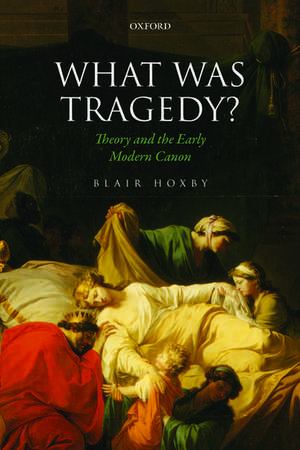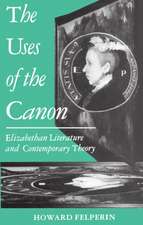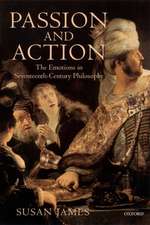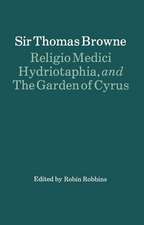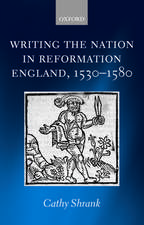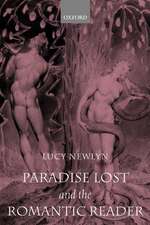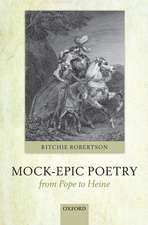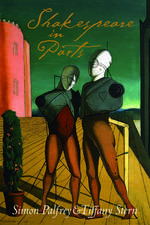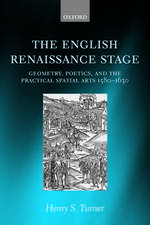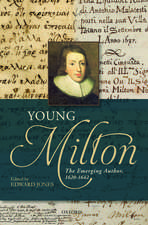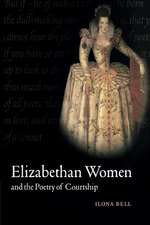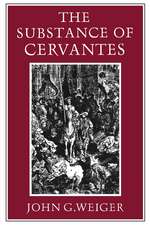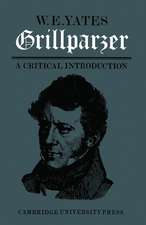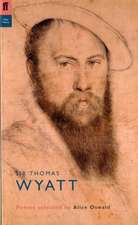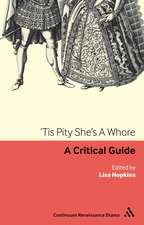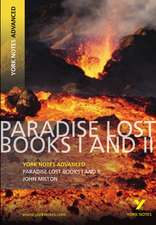What Was Tragedy?: Theory and the Early Modern Canon
Autor Blair Hoxbyen Limba Engleză Paperback – 27 apr 2017
| Toate formatele și edițiile | Preț | Express |
|---|---|---|
| Paperback (1) | 323.05 lei 31-37 zile | |
| OUP OXFORD – 27 apr 2017 | 323.05 lei 31-37 zile | |
| Hardback (1) | 690.19 lei 31-37 zile | |
| OUP OXFORD – oct 2015 | 690.19 lei 31-37 zile |
Preț: 323.05 lei
Preț vechi: 367.32 lei
-12% Nou
Puncte Express: 485
Preț estimativ în valută:
61.84€ • 67.19$ • 51.98£
61.84€ • 67.19$ • 51.98£
Carte tipărită la comandă
Livrare economică 10-16 aprilie
Preluare comenzi: 021 569.72.76
Specificații
ISBN-13: 9780198810599
ISBN-10: 0198810598
Pagini: 376
Ilustrații: Numerous black-and-white halftones
Dimensiuni: 155 x 234 x 21 mm
Greutate: 0.57 kg
Editura: OUP OXFORD
Colecția OUP Oxford
Locul publicării:Oxford, United Kingdom
ISBN-10: 0198810598
Pagini: 376
Ilustrații: Numerous black-and-white halftones
Dimensiuni: 155 x 234 x 21 mm
Greutate: 0.57 kg
Editura: OUP OXFORD
Colecția OUP Oxford
Locul publicării:Oxford, United Kingdom
Recenzii
What Was Tragedy? reflects recent interest in reception studies, as some of its chapters diligently consider the performance history and success of a variety of theatrical texts, some now forgotten (as is the case of Stefonio's Crispus), some relegated to a secondary position within the corpus of extremely canonical authors (as is the case of Shakespeare's Antony and Cleopatra).
One of this year's greatest scholarly achievements ... Combining literary and intellectual history, philosophy, and formal analysis, Hoxby recovers a largely lost early modern poetics of tragedy ... What Was Tragedy? has many implications not just for how we understand tragedy in our period, but also for how we conceive of early modern selfhood, how we understand the history of emotions, and how we go about the business of literary periodization. It's a major piece of scholarship.
Scholars of early modernity have long recognized the passions as a central concern of early modern culture. What Was Tragedy? illustrates how this concern was largely subsumed under the universalizing sway of idealism. In so doing, the book addresses a methodological concern within early modern studies about the pitfalls of reducing this period to the terms of modernity.
Hoxby exhibits a powerful disciplinary, linguistic, and chronological reach, and asks fundamental questions about secular and sacred drama, the Renaissance and the Enlightenment, and early modern and post-Romantic thought. For its combination of imaginative, omnivorous research and an argument that has already caused excited discussion here at RSA, the committee found this an extraordinary piece of work.
Hoxby (Stanford Univ.) has written an intriguing work that attempts to establish what the genre of tragedy meant before idealists such as Schelling, Schlegel, and Hegel created the definition now accepted.
This is an important book, and Hoxbys call to attend to and describe what was actually performed as tragedy in the period restores vitality and variation to the canon. Ultimately, he affords us a much clearer view of the masterwork over which the period labored.
Hoxby makes a very compelling case for attending more carefully to works that might answer to the name of tragedy produced in Europe between 1515 and 1795 ... Hoxbys book is a superb achievement, and treats us to nuanced and sensitive readings
In this densely learned book, Blair Hoxby sets himself the worthy and formidable task of scraping away the mores of German Idealists so that early modern tragedy might be read on its own terms ... it will be a valuable reference for years to come.
The sweep of the book is its greatest recommendation in many respects. Hoxby's deep knowledge of music and music history, world philosophy, and theatre practice provide a worthwhile and perhaps even indispensable addition to the body of work on the nature of tragedy. For the music and theatre scholar, Hoxby's work in answering his past-tense question should prove invaluable for those seeking to answer the same question in the here and now.
One of this year's greatest scholarly achievements ... Combining literary and intellectual history, philosophy, and formal analysis, Hoxby recovers a largely lost early modern poetics of tragedy ... What Was Tragedy? has many implications not just for how we understand tragedy in our period, but also for how we conceive of early modern selfhood, how we understand the history of emotions, and how we go about the business of literary periodization. It's a major piece of scholarship.
Scholars of early modernity have long recognized the passions as a central concern of early modern culture. What Was Tragedy? illustrates how this concern was largely subsumed under the universalizing sway of idealism. In so doing, the book addresses a methodological concern within early modern studies about the pitfalls of reducing this period to the terms of modernity.
Hoxby exhibits a powerful disciplinary, linguistic, and chronological reach, and asks fundamental questions about secular and sacred drama, the Renaissance and the Enlightenment, and early modern and post-Romantic thought. For its combination of imaginative, omnivorous research and an argument that has already caused excited discussion here at RSA, the committee found this an extraordinary piece of work.
Hoxby (Stanford Univ.) has written an intriguing work that attempts to establish what the genre of tragedy meant before idealists such as Schelling, Schlegel, and Hegel created the definition now accepted.
This is an important book, and Hoxbys call to attend to and describe what was actually performed as tragedy in the period restores vitality and variation to the canon. Ultimately, he affords us a much clearer view of the masterwork over which the period labored.
Hoxby makes a very compelling case for attending more carefully to works that might answer to the name of tragedy produced in Europe between 1515 and 1795 ... Hoxbys book is a superb achievement, and treats us to nuanced and sensitive readings
In this densely learned book, Blair Hoxby sets himself the worthy and formidable task of scraping away the mores of German Idealists so that early modern tragedy might be read on its own terms ... it will be a valuable reference for years to come.
The sweep of the book is its greatest recommendation in many respects. Hoxby's deep knowledge of music and music history, world philosophy, and theatre practice provide a worthwhile and perhaps even indispensable addition to the body of work on the nature of tragedy. For the music and theatre scholar, Hoxby's work in answering his past-tense question should prove invaluable for those seeking to answer the same question in the here and now.
Notă biografică
Blair Hoxby is Professor of English at Stanford University. After graduating with an A. B. from Harvard University, he studied at Oxford University as a Rhodes Scholar. He then earned his Ph.D. from Yale University. Before arriving at Stanford, he was an Associate Professor of English at Yale and an Associate Professor of History and Literature at Harvard. He is the author of Mammon's Music: Literature and Economics in the Age of Milton and the co-editor of Milton in the Long Restoration. He is writing a book on baroque theater and editing essay collections on tragedy in the Trans-Atlantic Enlightenment, on tragedy during the European Enlightenment, and on opera and tragedy from the seventeenth to the eighteenth centuries.
